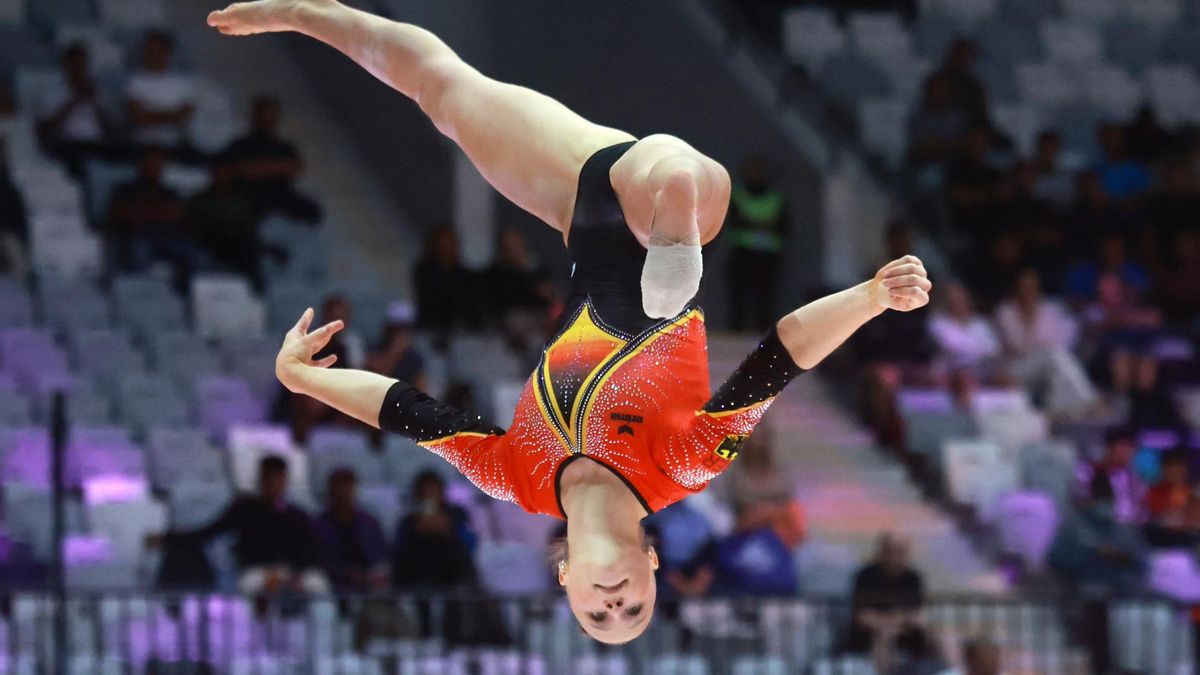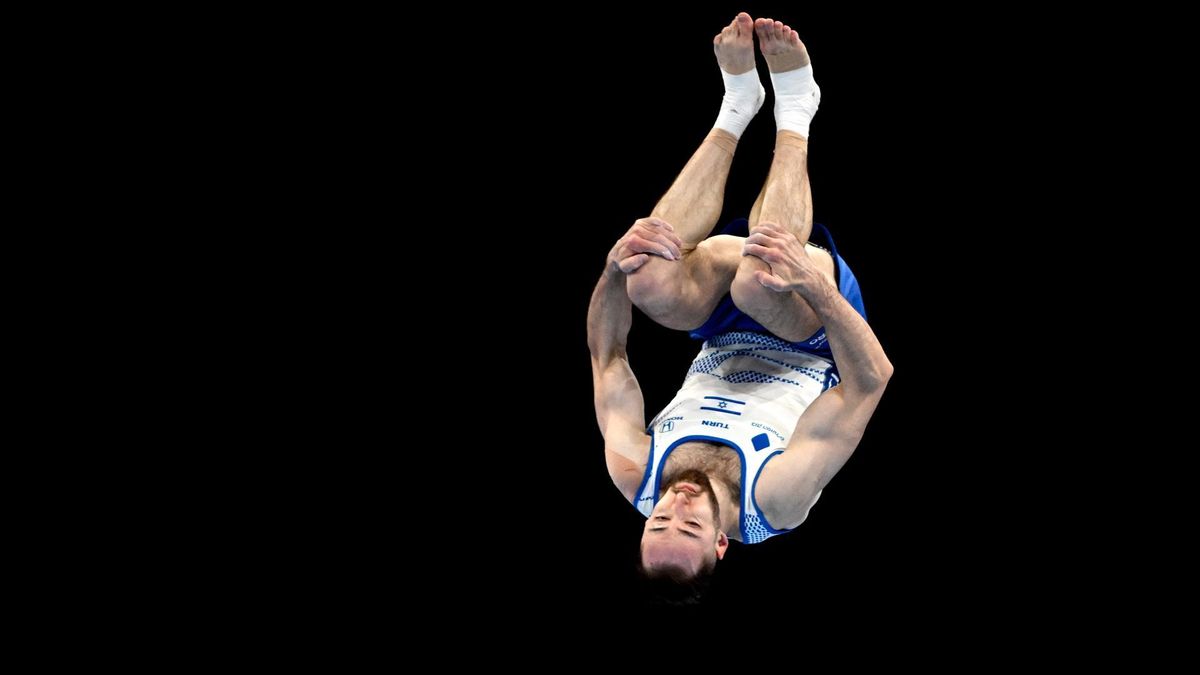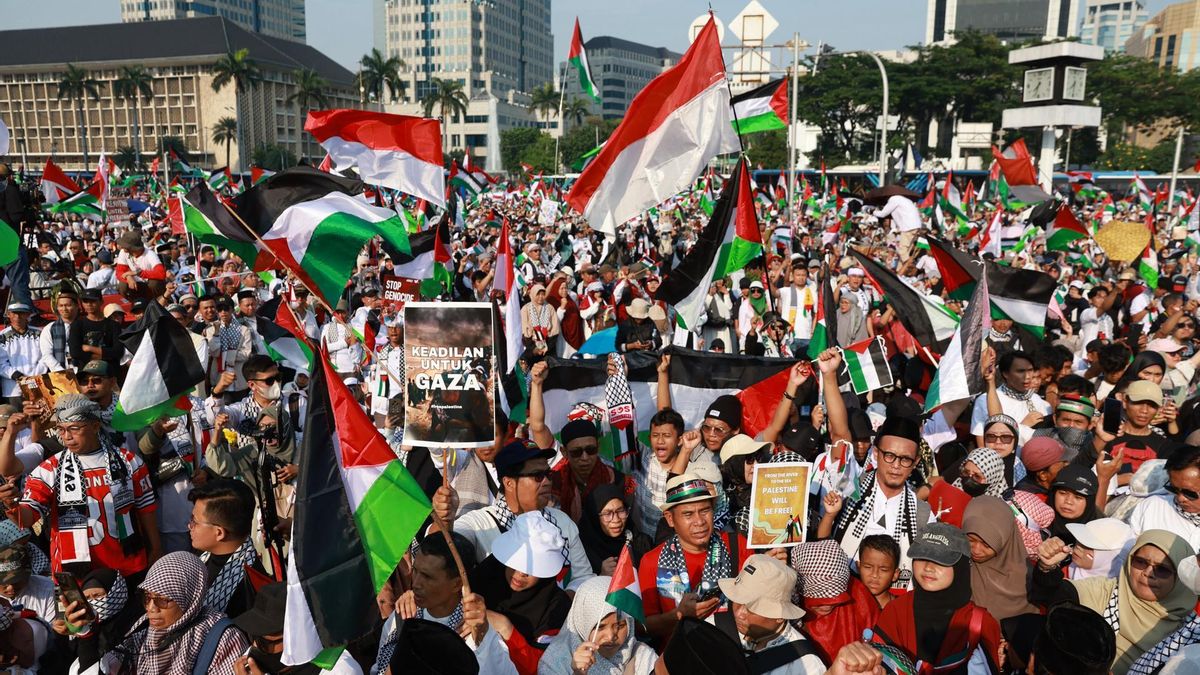Indonesia is located at an intersection of three tectonic plates: the Eurasian, the Indo-Australian and the Pacific. This makes this archipelago of more than 17,000 islands in Southeast Asia an area with great seismic and volcanic activity. The last great Indonesian earthquake, however, has not affected the foundations of its homes or its volcanoes, but has left a large crack in Olympic sports, in artistic gymnastics and in the campaign to whiten Israel through the practice of sport.
The movement began to be felt on October 10, when the Indonesian government reported the veto on the entry into the country of the six Israeli gymnasts qualified to participate in the World Artistic Gymnastics Championships held between October 19 and 26 in the capital, Jakarta.
In a statement issued by the Coordinating Ministry of Law, Human Rights, Immigration and Penitentiary Affairs, it was noted that the decision “is aligned with the basic principles of Indonesia's foreign policy, which constantly emphasizes the absence of diplomatic relations or any type of contact with Israel until this country recognizes the independence and full sovereignty of the State of Palestine.”
“The president has strongly condemned Israel's repressive actions against the Palestinian people, particularly in Gaza,” the statement underlined in reference to the latest speeches by the leader, Prabowo Subianto, such as the one delivered in September in New York during the United Nations General Assembly. In fact, already in the month of May, Subianto opened the door to the recognition of Israel and the establishment of diplomatic relations with Tel Aviv, although always under the condition that this State does the same with Palestine.
The Israeli response was immediate. The Israel Gymnastics Federation reacted with two appeals to the Court of Arbitration for Sport (CAS), seated in Lausanne, Switzerland. In the first, it requested the annulment of the statement issued by the International Gymnastics Federation (FIG) in which it “took note” of the decision of the country organizing the competition and declared its lack of powers in the issuance of visas to enter Indonesia. Israel argued that the FIG Statutes require its Executive Committee to “make a decision” if entry visas are not granted to all participating delegations.
Already on Monday, October 13, the Israeli Federation presented a second appeal together with the six affected gymnasts, Artem Dolgopyat, Eyal Indig, Ron Payatov, Lihie Raz, Yali Shoshani and Roni Shamay, in which they requested the CAS to order the International Federation to take the necessary measures to guarantee Israel's participation in the World Cups. Otherwise, it demanded the transfer or even the cancellation of the artistic gymnastics world championships.

The next day, the Court of Arbitration for Sports communicated its rejection of the two requests for urgent precautionary measures of Israel. Both appeals were studied by the vice president of the Appeals Arbitration Division and the result was the filing of the first appeal due to lack of jurisdiction and the maintenance of the second under study.
The CAS also rejected Israel's request to force the International Gymnastics Federation to guarantee its participation and also closed the door to any possibility of canceling or moving the artistic gymnastics world championship, which was due to begin just five days later in Jakarta.
The Swiss Court, however, continues to examine the merits of the second of the appeals presented by the Israeli federation and the six athletes qualified for the World Cup, among whom is Artem Dolgopyat, world champion and European floor runner-up in 2023 and gold medalist at the 2020 Tokyo Olympics and silver medalist at the Paris Olympics in 2024. Dolgopyat will not be able to revalidate his world champion title.

In statements to the British public television channel BBCthe general secretary of the Israeli Federation, Sarit Shenar, acknowledged that her “biggest fear” is that this type of sporting event could go ahead and become an “example.” “What will be next? It can happen in any discipline, in any sport, in any competition. This precedent is very dangerous,” he stated.
After the CAS decision, just two days before the start of the world competition and with the majority of delegations, including the Spanish one, already carrying out previous training in Indonesia, the International Olympic Committee released a statement. It stated that all qualified athletes, teams and sports officials “must be able to participate in international sporting competitions and events without any discrimination by the host country.”
The Olympic Committee also asked host countries, organizers and sports organizations to “ensure that this principle is fully respected” and that the competent authorities of the host country offer “in advance” all necessary guarantees for their participation in the competitions.
Furthermore, the IOC went on to acknowledge that “since it became aware of the situation” it has been “at all levels” in contact with the International Gymnastics Federation, the IOC member in Indonesia, the National Olympic Committee and the Indonesian government “to help facilitate a solution.” “Unfortunately, a solution has not been found,” added the sports organization, which “very regretted” the situation and noted the “remarkable step towards a peace agreement” at the Egyptian summit, attended by the president of Indonesia.
The IOC Executive Board also noted that it “will discuss the specific situation in Indonesia at its next meeting” and concluded: “Sport must remain a safe space for athletes to fulfill their dreams; and athletes cannot be held responsible for political decisions.”
A difficult relationship
Indonesia, the country in the world with the largest Muslim population in the world, with more than 200 million believers of Islam, belongs to the thirty countries that do not recognize the State of Israel. In the world of sports, this is not the first time that Indonesia has established a diplomatic veto on Israeli athletes. In 1962 he denied visas to athletes from Israel who were going to participate in the Asian Games, as well as to those from Taiwan.
Already in March 2023, FIFA withdrew the organization of the U-20 Men's Soccer World Cup from the Asian countrywhich was transferred to Argentina, after high authorities of the country asked for a veto from the Israeli delegation. The decision came after a meeting between Gianni Infantino, president of FIFA, and Erik Thoir, president of the Indonesian Football Federation.
Two weeks earlier, the governor of Bali, Wayan Koster, sent a letter to the Indonesian government to request a veto on the participation of the Israeli team. Koster alleged that “Israel's policies towards Palestine are incompatible with the policies of the Republic of Indonesia.” The governor of Central Java, Ganjar Pranowo, also showed his rejection of Israeli participation and the authorities' complaints later led to massive protests held on March 20 and 29 in Jakarta for this reason and in defense of the Palestinian people.

In August 2023, the Indonesian government denied funding to the World Beach Sports Games, which were to be held in Bali, due to pressure from the Association of National Olympic Committees demanding the admission of Israel to the competition.
Indonesia is one of the four candidate countries to host the 2036 Olympic Games.